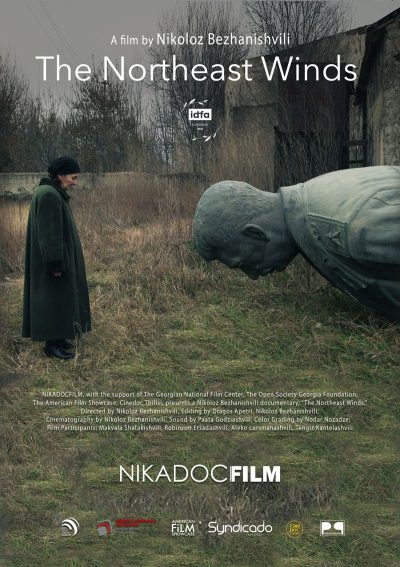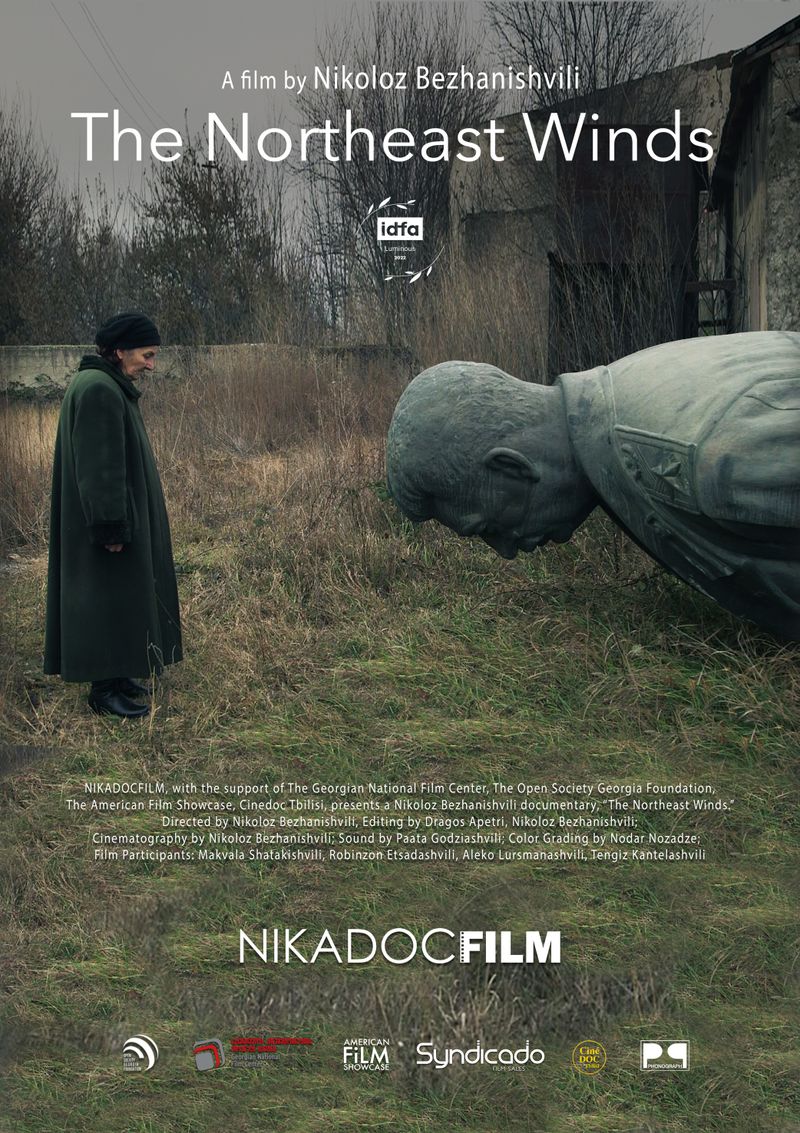The Astra Film Festival 2023 held special meaning for me. It was the first time I attended the festival again since the pandemic, and butterflies started fluttering weeks beforehand. Even though the ASTRA Film Festival is located in the small town of Sibiu, every time I attend, I feel like I am traveling around the world. In 2023, I even got to “travel” back to Georgia, my home country.

Photo by Florin Slabu
The Northeast Winds (2022) by Nikoloz Bezhanishvili explores a community of nostalgic communists in Stalin’s hometown, Gori, who long for the pre-Soviet days. Their peace of mind is further disturbed when city authorities order the removal of Stalin’s statue. The documentary depicts the fate of people fixated on the past and their reluctance to accept the irreversible changes in the world around them.
The film offers stunning cinematography, focusing on protagonists who worship Stalin and advocate for erecting his statue in the center of Gori, Stalin’s birthplace. A few minutes into the film, I realized it was not just a simple story about a few people who happen to have sympathies for a dictator responsible for killing thousands. The film provides a more intimate glimpse into the minds of the protagonists. What drives them? Is it just nostalgia for the Soviet Union, or could it simply be their longing for their youth? The glaring loneliness of the main characters is hard to overlook and evokes unexpected empathy, even in those like me who rigorously despise everything associated with Stalin’s legacy.
Recent Georgian political landscape has shed a new light on the documentary. The Georgian government has reintroduced the so-called “Russian law,” which targets media and non-governmental organizations, labeling them as “serving the interests of a foreign power” if more than 20% of their funding comes from abroad. Mass protests began in April and lasted for two months until the law was adopted by the parliament despite widespread societal resistance. The police have violently dispersed and arrested protesters. The Georgian government has made increasingly hostile statements against Western leaders, who have unanimously condemned the “Russian Law” and its potential disastrous effects on Georgian democracy.

The Northeast Winds (2022)
Photo source: https://www.astrafilm.ro/en/2023/film/the-northeast-winds
In light of these events, The Northeast Winds gains new relevance and raises a glaring question: Is Georgia ready to move on from its dark Soviet past? What causes this nostalgia among people?
I enjoy discussing politics with nearly everyone—taxi drivers, salespeople, friends, and people from various backgrounds. What I have observed (unsurprisingly) aligns with the strong support for Western aspirations within Georgian society—around 80% of Georgians are firmly in favor of EU membership, which is considerably higher than in other Eastern Partnership countries.
However, 20% is still a significant number. Considering that the country currently has a clearly pro-Russian government (even if they deny it vigorously, knowing that the society would not accept an officially pro-Russian government), it’s important to understand what those 20% think.
Here’s where The Northeast Winds is particularly insightful as it touches upon an interesting subject: loneliness and missing one’s youth and simpler times. The meetings of Stalin’s supporters resemble any community united around a shared idea or affliction. They meet regularly, discuss their plans, enjoy meals together, and share their sorrows and the hardships of life they endure. One should not overlook the difficult socio-economic conditions in the country, where poverty and unemployment are major issues, and these people live in conditions that can hardly be described as decent.
I would say that the Stalin Museum in Gori is another somber reminder of how the Georgian people have not fully grasped the devastating repercussions of the Soviet era, including the thousands executed in 1937 during the so-called Great Purge, such as my great-grandfather, who was only 32 at the time of his execution. Ironically, his alleged crime was being a foreign agent. Various famous writers and public figures have also been executed in 1937.
The atmosphere in Stalin’s museum is difficult to describe; it exudes a “Soviet air” and maintains a somewhat positive tone regarding Stalin’s persona. It was dedicated to Stalin in 1957 and reopened in 1989, remains largely unchanged, with plans for its reorganization postponed indefinitely.
With the parliamentary elections of 2024 on the horizon, Georgia stands at a decisive crossroad. Will the country step back into the dark shadow of Stalin (and Russia, which its atrocious crimes against democracy), or will it move forward toward the EU and bid farewell to Stalin as a symbol of strength and prosperity?
These questions are incredibly challenging to answer, but that’s precisely what makes The Northeast Winds so valuable, in my view. While we hope for progress and the triumph of democracy, it’s crucial to recognize that history seldom delivers swift and lasting change. Shifting deep-seated mindsets takes time, and we may need to wait a bit longer before Stalin’s shadow truly fades and we can finally say, “Goodbye, Stalin!”

